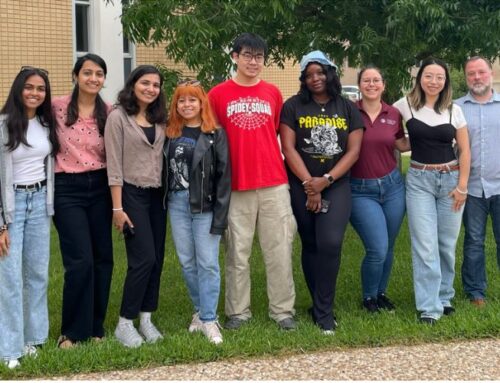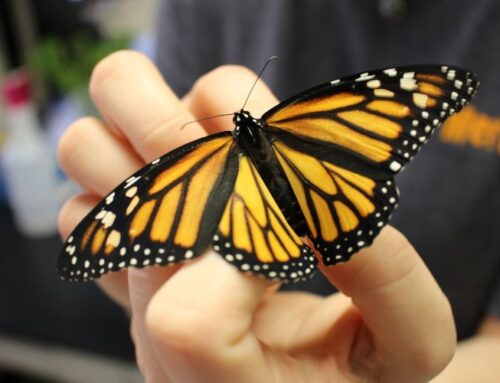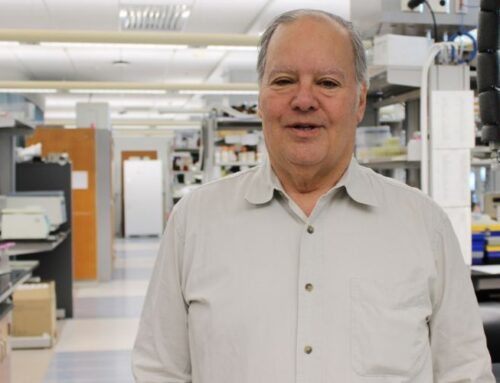Department of Biology Brings Together Regional Research Community with STEGG 2025
By: TAMU Biology

On May 30, 2025, the Department of Biology at Texas A&M University proudly hosted the annual Southeast Texas Evolutionary Genetics and Genomics (STEGG) Conference. Organized by Dr. Heath Blackmon, with significant financial and logistical support from the department, STEGG has rapidly become a signature regional event for evolutionary biology, genomics, and systematics.
This year’s conference welcomed over 130 participants from institutions across Texas and beyond, including faculty, postdocs, graduate students, and undergraduates. STEGG provides a unique forum for both established and emerging scientists to share new discoveries, exchange ideas, and build collaborations in an inclusive and collegial environment.
The conference featured a full day of programming, including two talk sessions and two large poster sessions. Research presentations spanned the full breadth of modern evolutionary genetics—from sex chromosome evolution and genome architecture, to conservation genomics, microbial ecology, and the molecular basis of behavior and speciation. The program highlighted both empirical and theoretical work, with an emphasis on cross-disciplinary approaches.
The Department of Biology was particularly well-represented with four talks contributed by faculty and students in the department.
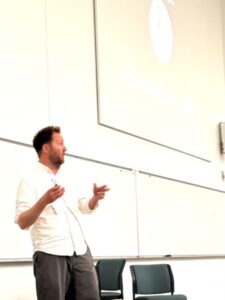
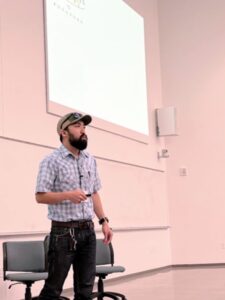
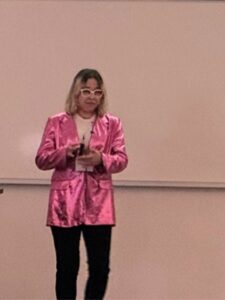
- Dr. Josh Lillvis, Assistant Professor of Biology, presented his research dissecting the neural and genetic architecture of Drosophila courtship songs.
- Sean Chien, Biology Ph.D. student, presented his work on the population genomics of endangered beetles across Asia and North America.
- Wynne Radcliffe, Biology Ph.D. student, presented her research on the role of sex chromosome divergence in driving speciation in darters.
Zhaobo Hu, Biology Postbac student, presented his research on the role of repetitive DNA on variation in gene density within vertebrate genomes.
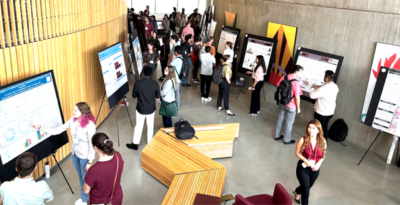 In addition, Biology students made a strong showing in the poster sessions, contributing over a quarter of the posters presented at the conference. These posters showcased innovative research on topics such as genome architecture, sex chromosome evolution, mating strategies, epigenetics, and more.
In addition, Biology students made a strong showing in the poster sessions, contributing over a quarter of the posters presented at the conference. These posters showcased innovative research on topics such as genome architecture, sex chromosome evolution, mating strategies, epigenetics, and more.
Thanks to generous support from the Department of Biology and additional campus partners—including the Ecology & Evolutionary Biology (EEB) Program, the Genetics and Genomics (GENE) Program, and the College of Arts and Sciences—STEGG remains a free and accessible conference, with catered lunch, coffee breaks, and networking opportunities supported by departmental and college sponsorship. This commitment ensures broad participation by students and early-career researchers from a wide range of backgrounds.
Events like STEGG exemplify the Department of Biology’s ongoing dedication to advancing research in genetics, genomics, and evolution; fostering student training and professional development; and strengthening regional research networks. Planning is already underway for STEGG 2026, with an eye toward expanding participation and promoting new interdisciplinary connections.



